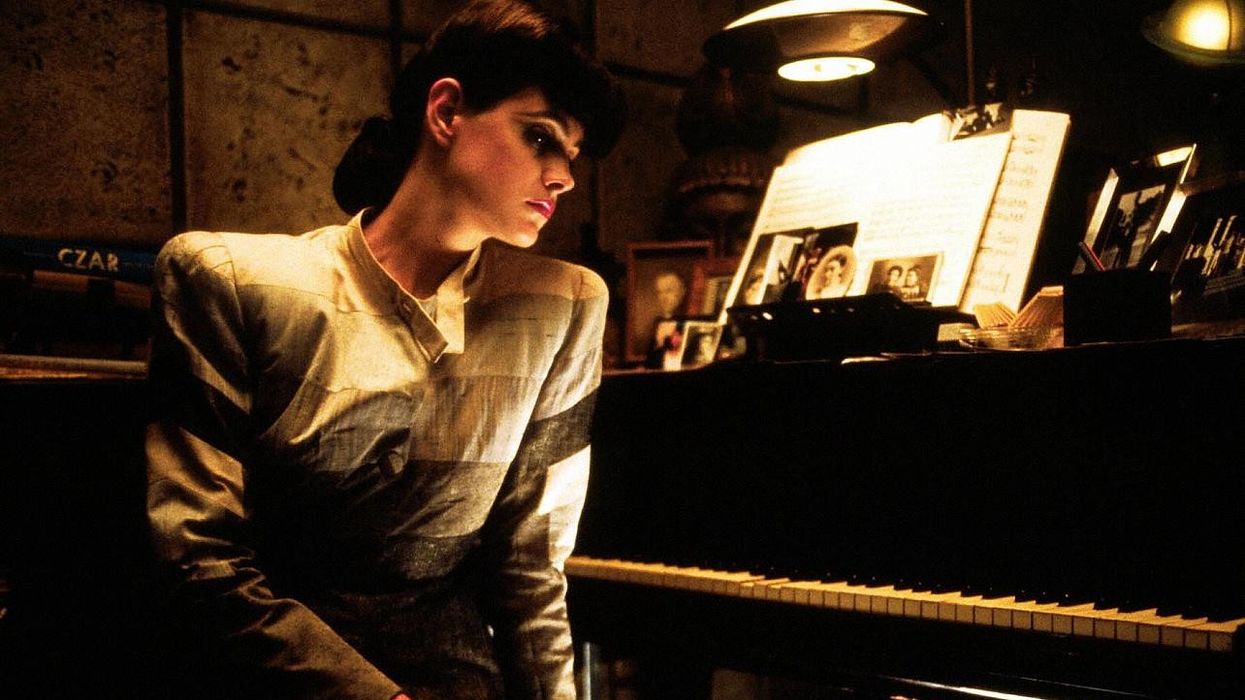Watch: Why Sounds Make Up the DNA of 'Blade Runner'
Takes a close listen to the sounds of Blade Runner and you might find they're even more integral to the film than you thought.

How important is music to a movie? Considering that silent films featured live musical accompaniment for decades before the advent of sync sound, and that serious academics such as Adorno and Eisler developed theories of film music, (they posited that the music acted as a buffer between the audience and the images on the screen) it's probably not negligible. But what about the way the dialogue is mixed, or the echoes of footsteps? In this new video essay from Evan Puschak, AKA The Nerd Writer, he takes an in-depth listen to one of the most influential movies of the past forty years, Blade Runner, and comes up with some surprising answers that might help you think about your next film.
While acknowledging up front that music is important to every movie (that has music, of course), Puschak argues that the totality of sound in Blade Runner, scored by the legendary Vangelis, "plays a different role. The score isn't laid on top of the visuals...It's not a guide or an addition. The music is sort of baked into the DNA of the movie itself. All the audio that you hear, including score, sound design, and dialogue, it's tightly integrated. Each blurs into the others."
"The music is sort of baked into the DNA of the movie itself."
By 1982, the year of the film's release, electronic music had been a sci-fi staple for decades, with theremins and other far-out machines supplying the soundtracks for classics like The Day the Earth Stood Still. Puschak places Blade Runner on a continuum between the amelodic scores of movies like Forbidden Planet and the "grand symphonic themes" of Star Wars. Part of the magic of the music of Blade Runner is that Vangelis puts familiar sci-fi noises to "a more musical purpose," one where the audience "shouldn't be able to identify where the music ends and the world begins."
Puschak cites the above scene for its use of atmospherics, sounds that are reminiscent of wind chimes, "something that could very well be in the space, and match with the dancing light on the walls," though they could also be coming from a machine in the room, off-screen. Also important to the scene, and the movie, is the heavy use of digital reverb. In fact, "it's the manipulation of reverb that gives Blade Runner it's distinct feeling." Reverb is, essentially, a digitally produced echo, an imitation of the real effect of reverberation and a variety of echo, except that "echo has a long delay in between repetitions....Reverb is so fast that you hear it more as a smear of sound."
"Heavy reverb—because it implies a huge, enclosed, hard-surfaced space—creates a mood of paranoia."
Digital reverb was a relatively new development at the time, introduced only six years before the film's release. It uses algorithms to extend the natural decay of reverberation in nature, and the device that Vangelis used in the film, the Lexicon 224, could "extend decays up to 70 seconds, allowing you to make spacey, ethereal sounds."
Quoting film writer Andrew Stiller, who wrote that "heavy reverb—because it implies a huge, enclosed, hard-surfaced space—creates a mood of paranoia," Puschak also makes a case that the reverb in Blade Runner "blends things together, and this is a way Vangelis folds separate audio sources into one aural master track...every scene is composed to create this cohesive acoustic environment, whether the emphasis is on dialogue, or sound effects, or the music."
Vangelis composed as he watched freshly edited film, with one of his chief instruments being a Yamaha CS-80, one of the most prized synthesizers of all time, even though it was discontinued in 1980. The composer preferred to keep his first takes, and had a set-up that allowed for extensive improvisation (this exhaustive fansite is a treasure trove of information on the scoring of the film).

Perhaps more than anything, what makes the sound of Blade Runner so exemplary is the unity it achieves. When you're able to work with talented people, and get them all on the same page, the work they do will contribute to the harmony of the finished product. This is what Ridley Scott did by collaborating with Vangelis on Blade Runner, and Vangelis' exemplary is one of the most important elements of this film masterpiece—not to mention some of the most important work in film sound history.
Source: The Nerd Writer












